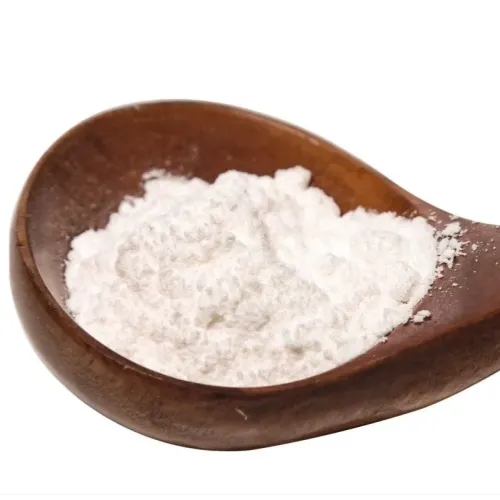Warning: Undefined array key "title" in /home/www/wwwroot/HTML/www.exportstart.com/wp-content/themes/1198/header.php on line 6
Warning: Undefined array key "file" in /home/www/wwwroot/HTML/www.exportstart.com/wp-content/themes/1198/header.php on line 7
Warning: Undefined array key "title" in /home/www/wwwroot/HTML/www.exportstart.com/wp-content/themes/1198/header.php on line 7
Warning: Undefined array key "title" in /home/www/wwwroot/HTML/www.exportstart.com/wp-content/themes/1198/header.php on line 7
- Afrikaans
- Albanian
- Amharic
- Arabic
- Armenian
- Azerbaijani
- Basque
- Belarusian
- Bengali
- Bosnian
- Bulgarian
- Catalan
- Cebuano
- China
- China (Taiwan)
- Corsican
- Croatian
- Czech
- Danish
- Dutch
- English
- Esperanto
- Estonian
- Finnish
- French
- Frisian
- Galician
- Georgian
- German
- Greek
- Gujarati
- Haitian Creole
- hausa
- hawaiian
- Hebrew
- Hindi
- Miao
- Hungarian
- Icelandic
- igbo
- Indonesian
- irish
- Italian
- Japanese
- Javanese
- Kannada
- kazakh
- Khmer
- Rwandese
- Korean
- Kurdish
- Kyrgyz
- Lao
- Latin
- Latvian
- Lithuanian
- Luxembourgish
- Macedonian
- Malgashi
- Malay
- Malayalam
- Maltese
- Maori
- Marathi
- Mongolian
- Myanmar
- Nepali
- Norwegian
- Norwegian
- Occitan
- Pashto
- Persian
- Polish
- Portuguese
- Punjabi
- Romanian
- Russian
- Samoan
- Scottish Gaelic
- Serbian
- Sesotho
- Shona
- Sindhi
- Sinhala
- Slovak
- Slovenian
- Somali
- Spanish
- Sundanese
- Swahili
- Swedish
- Tagalog
- Tajik
- Tamil
- Tatar
- Telugu
- Thai
- Turkish
- Turkmen
- Ukrainian
- Urdu
- Uighur
- Uzbek
- Vietnamese
- Welsh
- Bantu
- Yiddish
- Yoruba
- Zulu
Sep . 28, 2024 14:46 Back to list
Understanding Xylitol Its Uses and Benefits for Health and Wellness
What is Xylitol and What is it Used For?
Xylitol is a naturally occurring sugar alcohol widely used as a sugar substitute. It is found in various fruits and vegetables, such as berries, oats, and mushrooms. Although it has a sweetness similar to that of regular sugar, xylitol contains fewer calories and has a lower glycemic index, making it a popular choice for those looking to reduce their sugar intake. This article will explore what xylitol is and its various applications.
Understanding Xylitol
Chemically, xylitol is a five-carbon sugar alcohol (also known as a pentitol) obtained through the hydrogenation of xylose. The human body can metabolize it efficiently, which means it doesn't have the same detrimental effects as regular sugar on blood glucose levels. Because of this, xylitol is particularly beneficial for individuals with diabetes and those looking to maintain a healthier diet.
Uses of Xylitol
1. Dental Health
One of the most well-known applications of xylitol is in dental health products. Xylitol has been shown to reduce the levels of decay-causing bacteria in the mouth, such as Streptococcus mutans. Regular consumption of xylitol can help lower the risk of cavities and promote overall oral hygiene. Many dental care products, such as toothpaste and mouth rinses, now include xylitol as a key ingredient.
As a sugar substitute, xylitol is prized for its ability to mimic the taste and texture of sugar without contributing to the same calorie count. This makes it an appealing option for baking and cooking, as well as for sweetening beverages. Products labeled as sugar-free often contain xylitol, offering a guilt-free indulgence for those looking to satisfy their sweet tooth without compromising their health goals.
xylitol what is it used for

3. Weight Management
Xylitol's lower calorie content compared to regular sugar makes it a popular choice for weight management. Foods and drinks sweetened with xylitol can provide a sweet taste without the extra calories, assisting individuals who are trying to lose or control their weight.
4. Moisturizers and Skin Care
Interestingly, xylitol is also used in the cosmetics industry. It possesses humectant properties, meaning it helps retain moisture. This makes it an effective ingredient in moisturizers and skin care products, particularly for individuals with dry skin.
5. Pet Care
While xylitol is safe for human consumption, it's important to note that it is extremely toxic to dogs. Ingesting even small amounts can lead to hypoglycemia (low blood sugar) and liver failure in pets. Consequently, xylitol has become a focal point for pet safety, prompting discussions on ingredient labeling and awareness among pet owners to keep their furry friends safe.
Conclusion
In summary, xylitol is a versatile sugar alcohol with numerous benefits and applications, particularly in dental health, weight management, and skin care. Its ability to provide sweetness without the adverse effects of sugar makes it an attractive alternative for many people. However, while it is safe for human consumption, it's essential for pet owners to be vigilant about products containing xylitol in order to protect their pets from potential harm. Overall, xylitol stands as a prime example of how natural substances can offer practical solutions for modern health and wellness challenges.
Latest news
-
Certifications for Vegetarian and Xanthan Gum Vegetarian
NewsJun.17,2025
-
Sustainability Trends Reshaping the SLES N70 Market
NewsJun.17,2025
-
Propylene Glycol Use in Vaccines: Balancing Function and Perception
NewsJun.17,2025
-
Petroleum Jelly in Skincare: Balancing Benefits and Backlash
NewsJun.17,2025
-
Energy Price Volatility and Ripple Effect on Caprolactam Markets
NewsJun.17,2025
-
Spectroscopic Techniques for Adipic Acid Molecular Weight
NewsJun.17,2025

